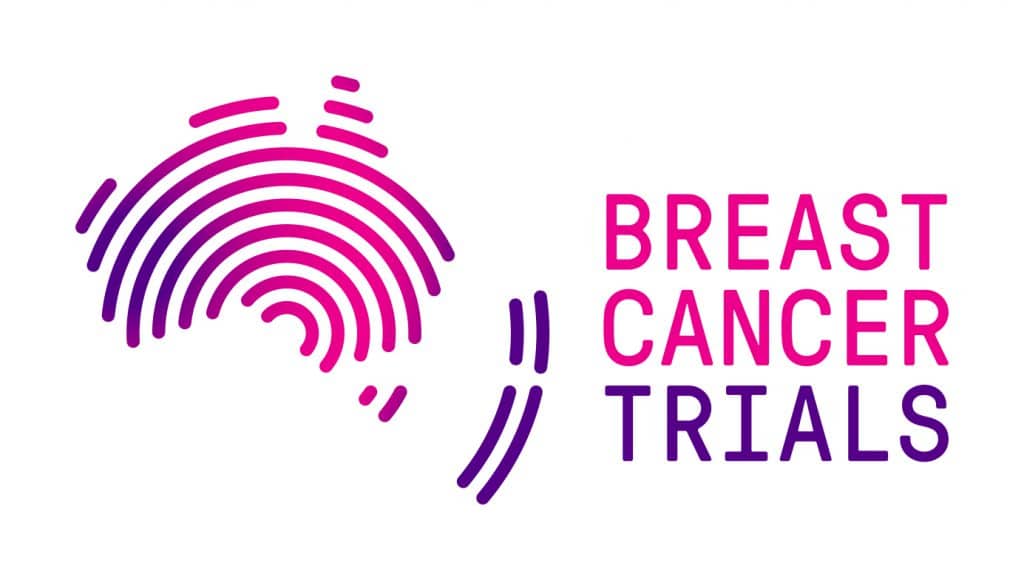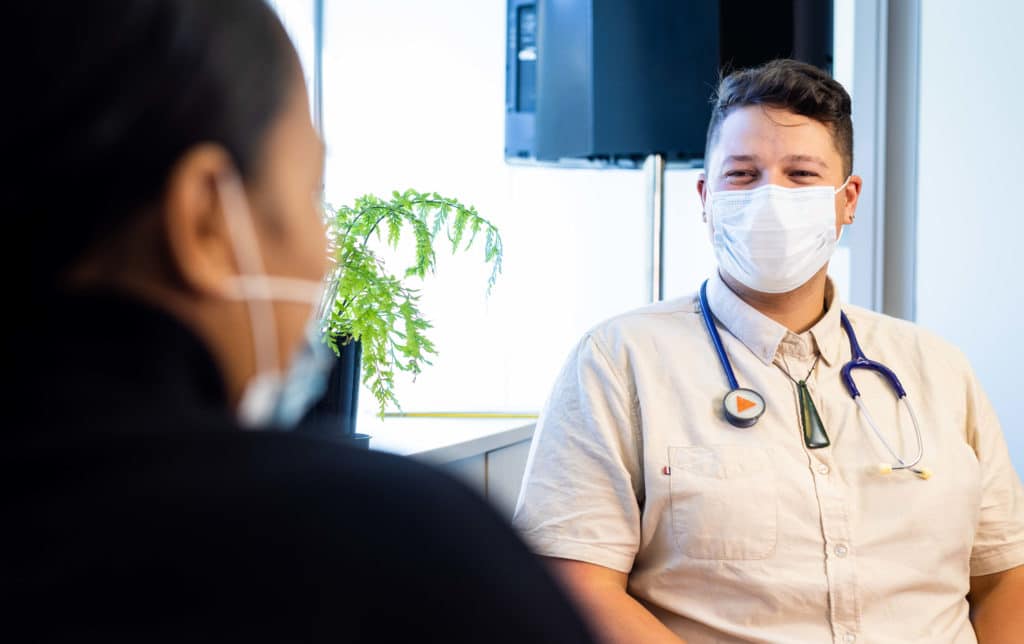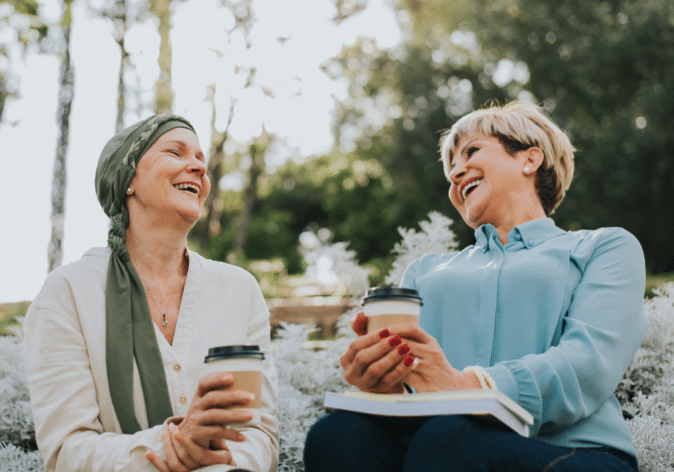COVID-19 & Cancer
This information is correct as of 27/03/2020. Breast Cancer Trials will endeavour to update this page as new information comes to hand.
As coronavirus (COVID-19) continues to spread, our thoughts go out to anyone who has been impacted. We hope that everyone is safe and well and taking the necessary precautions and following the relevant guidelines to help minimise the spread of the virus.
It is important to keep informed about the COVID-19 situation as it continues to change, especially for those who are immuno-compromised.
Those with compromised immune systems or pre-existing medical conditions, including cancer, may be at increased risk of contracting COVID-19 and may have an increased risk of developing a more severe infection. However, a past history of early stage breast cancer is not thought to be associated with worse outcomes in itself, unless your doctor has told you otherwise. Similarly, hormone blocking therapies used to treat early stage breast cancer such as tamoxifen, goserelin, anastrozole, letrozole and exemestane on their own are not known to reduce immunity.
Those of a more advanced age, people with other health conditions such as heart disease or diabetes, or those with respiratory illnesses are also at a higher risk of developing a more severe infection. The measures being put in place throughout the world aim to help protect these more vulnerable members of society.
If you are currently in active treatment and concerned about symptoms you should phone your treating doctor or health team, or GP immediately for advice.
If you have finished treatment, you should follow the advice being directed at the general public.
Breast Cancer Trials has collated some information for those who are undergoing cancer treatment and may have compromised immune systems.
This information is designed only as a guide. If you have health concerns or are experiencing symptoms, contact your treatment team immediately. The situation is changing quickly, and you should monitor appropriate information sources, listed below, for the most up to date advice.
What Are The Symptoms Of COVID-19?
Symptoms can range from mild illnesses to pneumonia. Many people will recover easily, however those with compromised immune systems may get sick very quickly. People with COVID-19 may experience flu-like symptoms such as fever, coughing, sore throat, fatigue and shortness of breath.
It’s important to note that some of these symptoms are also side-effects of some cancer treatment. During active treatment, fever or the combination of cough with fever, or cough with difficulty breathing require urgent medical attention.
You should cover all coughs and sneezes with your elbow and tissues and avoid others if you are sick. You should also avoid touching your eyes, nose and mouth.
If you have serious symptoms such as difficulty breathing, call 000 for help in Australia and 111 in New Zealand.
What Should I Do If I Am Exposed To A Confirmed COVID-19 Case?
If you are exposed to a confirmed COVID-19 case, contact your GP, treatment team or treating doctor immediately for advice. Always try to do this over-the-phone and not in person to reduce the risk of exposing others.
You can also call the government COVID-19 health advice and information line on 1800 020 080 in Australia and 0800 358 5453 in New Zealand.
What Should I Do To Protect Myself From COVID-19 If I Am Undergoing Treatment?
If you are undergoing cancer treatment, or have a compromised immunity, you may want to take extra precautionary steps to reduce the chance of contracting COVID-19.
This includes washing your hands with soap and water more frequently and for at least 20 seconds, using alcohol-based sanitiser, avoiding touching your face, social distancing, cleaning and disinfecting surfaces. Wearing a facemask has not been shown to protect asymptomatic people (non-healthcare workers) from becoming infected with COVID-19.
Discuss with your treating team regarding timing of a flu shot as getting the flu and COVID-19 at the same time can make you very ill.
Also you should ensure you have enough prescription and over-the-counter medications, try to keep space between yourself and others, limit your exposure to groups of people, when in public avoid crowds, wash your hands often and avoid any unnecessary travel.
Do Any Of My Treatments Increase My Risk Of Contracting COVID-19?
Cancer treatments that compromise the immune system can increase your risk of COVID-19. This can include chemotherapy, CDK4/6 inhibitors, radiotherapy and surgery. Hormone blocking treatments such as tamoxifen, goserelin, letrozole, anastrozole and exemestane are not known to reduce the immune system, therefore people on these treatments for early stage breast cancer are not considered to be at increased risk. Your doctor and treatment team have your health in their best interests and will be aware of these risks. Follow their advice and speak with them about any concerns you may have.
Does A History Of Cancer Increase My Risk Of Developing And Of Complications Of COVID-19?
A past history of cancer may increase the risk of developing and of complications from COVID-19. However, we do not have much data on which to base that. However, a past history of breast cancer, treated with curative intent, is not likely to cause severe immune compromise comparable to someone currently receiving chemotherapy.
Does COVID-19 Affect My Participation In A Clinical Trial?
At present, Breast Cancer Trials clinical trials will adapt to take into account the current situation. Some changes may be required, such as the use of telehealth for certain trial activities, if possible. If you have any questions or concerns regarding your clinical trial participation, contact your clinical trials team or treating doctor.
Will Breast Cancer Trials Be Continuing Clinical Trials?
Breast Cancer Trials will be closely monitoring and adapt to the situation to ensure that our trials run as smoothly as possible during this time. Our priority is the safety of patients, and appropriate measures will be put in place to minimise risks to trial participants.
What Should My Family And Friends Do To Help Avoid The Spread Of COVID-19?
Your family and friends should follow the government guidelines about reducing the spread of COVID-19 which can be found here. This includes social distancing, hand hygiene and regular cleaning of surface. If they are experiencing any symptoms or have come into contact with a confirmed COVID-19 case, you should avoid any contact with them, and they should isolate themselves according to the guidelines.
If possible, they should also consider getting the flu shot to avoid sharing the flu to you, while you have a compromised immune system.
What Should I Do If I Am Feeling Stressed Or Anxious About COVID-19?
It appears as though COVID-19 is being spoken about everywhere at the moment: in the news, by friends and family, and on social media.
It is important that you monitor the most correct and up-to-date information sources regarding COVID-19. Do not rely on social media as your only form of information. You should get your information from the Department of Health Australia and the Ministry of Health New Zealand.
Breast Cancer Network Australia have increased the number of people and hours their telephone helpline is operating. This helpline is staffed by breast cancer nurses. It may help to speak with a health care professional about your health concerns. You can call them on 1800 500 258.
If you are feeling anxious, have questions or need support, you can contact the Cancer Council’s support and information line on 13 11 20. Their professional team can help to provide emotional support as well as practical tips for minimising the risk of infection during this time.
In New Zealand you can contact the Cancer Society information service helpline on 0800 266 237.
If you have a treating counsellor, psychologist or onco-psychologist, it may also be helpful to schedule a phone appointment with them to discuss your anxieties and concerns.
For More Information
For Australia: You can call the Coronavirus Health Information Line for advice on 1800 020 080. This service operates 24 hours a day, seven days a week. It you require interpretation services, call 131 450
For New Zealand: For COVID-19 health advice and information, contact the Healthline team on 0800 358 5453 or +64 9 358 5453 for international SIMS.
Government updates on COVID-19 in Australia
Government updates on COVID-19 in New Zealand
This information has been reviewed by Breast Cancer Trials Medical Advisor on 24/03/20. It is meant as a guide only. If you have concerns regarding your health, contact your treating physician or treatment team.
QUICK ACCESS
What Are The Symptoms Of COVID-19?
What Should I Do If I Am Exposed To A Confirmed COVID-19 Case?
What Should I Do To Protect Myself From COVID-19 If I Am Undergoing Treatment?
Do Any Of My Treatments Increase My Risk Of Contracting COVID-19?
Does A History Of Cancer Increase My Risk Of Developing And Of Complications Of COVID-19?
Does COVID-19 Affect My Participation In A Clinical Trial?
Will Breast Cancer Trials Be Continuing Clinical Trials?
What Should My Family And Friends Do To Help Avoid The Spread Of COVID-19?
What Should I Do If I Am Feeling Stressed Or Anxious About COVID-19?
Support Us
Help us to change lives through breast cancer clinical trials research



